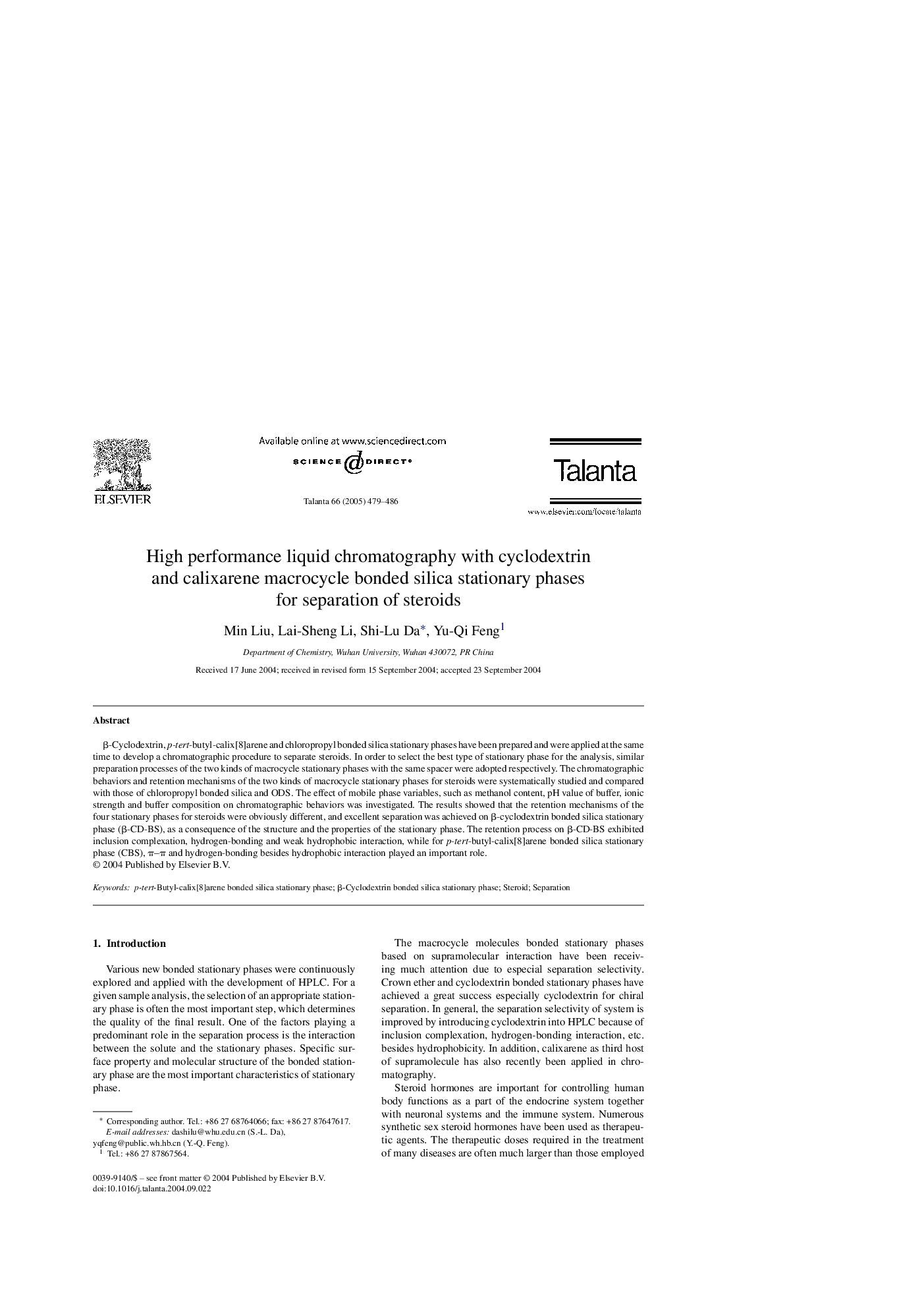| Article ID | Journal | Published Year | Pages | File Type |
|---|---|---|---|---|
| 10561327 | Talanta | 2005 | 8 Pages |
Abstract
β-Cyclodextrin, p-tert-butyl-calix[8]arene and chloropropyl bonded silica stationary phases have been prepared and were applied at the same time to develop a chromatographic procedure to separate steroids. In order to select the best type of stationary phase for the analysis, similar preparation processes of the two kinds of macrocycle stationary phases with the same spacer were adopted respectively. The chromatographic behaviors and retention mechanisms of the two kinds of macrocycle stationary phases for steroids were systematically studied and compared with those of chloropropyl bonded silica and ODS. The effect of mobile phase variables, such as methanol content, pH value of buffer, ionic strength and buffer composition on chromatographic behaviors was investigated. The results showed that the retention mechanisms of the four stationary phases for steroids were obviously different, and excellent separation was achieved on β-cyclodextrin bonded silica stationary phase (β-CD-BS), as a consequence of the structure and the properties of the stationary phase. The retention process on β-CD-BS exhibited inclusion complexation, hydrogen-bonding and weak hydrophobic interaction, while for p-tert-butyl-calix[8]arene bonded silica stationary phase (CBS), Ï-Ï and hydrogen-bonding besides hydrophobic interaction played an important role.
Keywords
Related Topics
Physical Sciences and Engineering
Chemistry
Analytical Chemistry
Authors
Min Liu, Lai-Sheng Li, Shi-Lu Da, Yu-Qi Feng,
